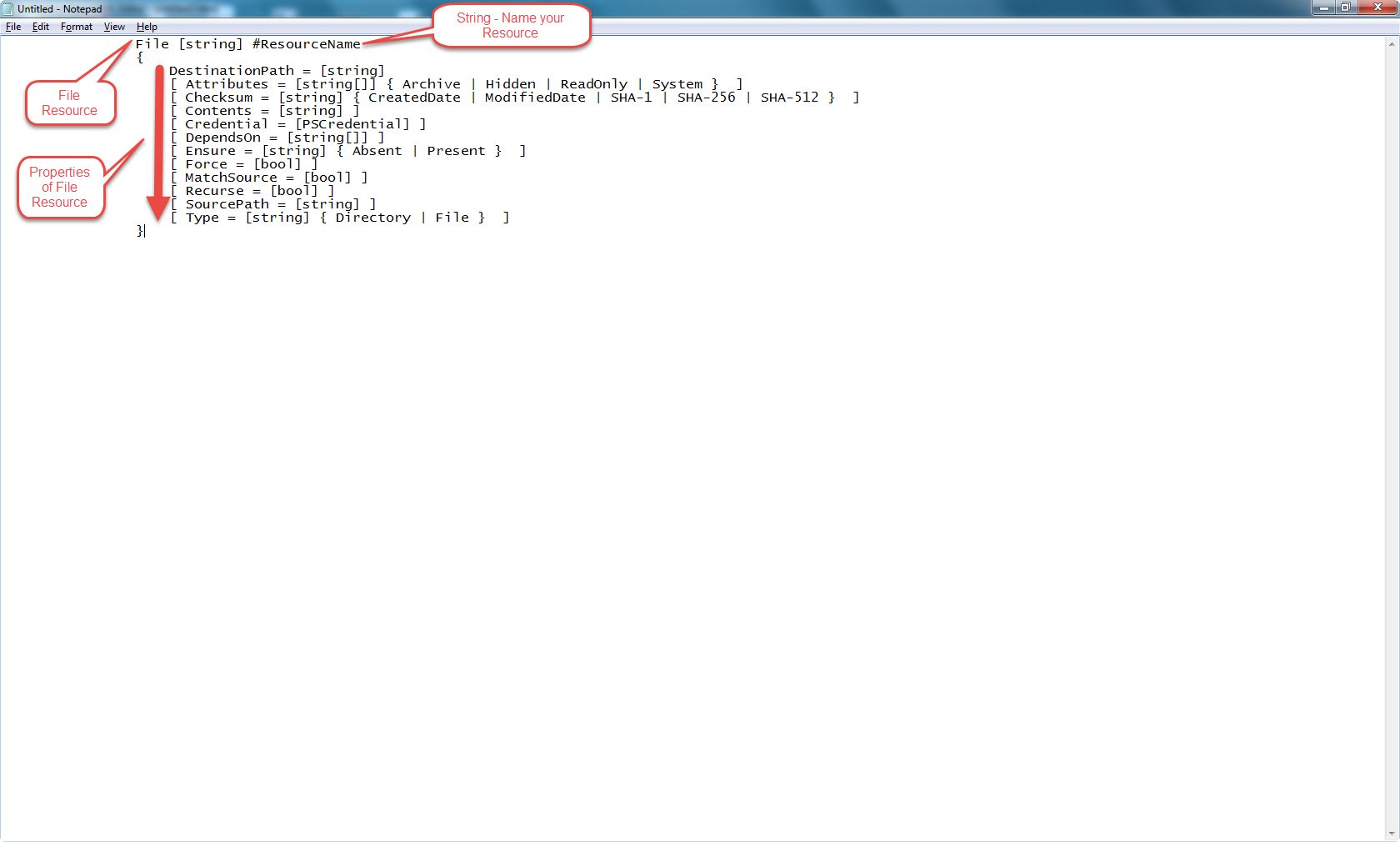PowerShell 5.0 Desired State Configuration - File Resource Demo
PowerShell 5.0 Desired State Configuration - File Resource Demo
In this Wiki let's explore File Resource Demo
Explore Resource
| Get-DSCResource |
Syntax
| Get-DscResource -Name File -Syntax |
Syntax command outputs the below
| File [string] #ResourceName { DestinationPath = [string] [ Attributes = [string[]] { Archive | Hidden | ReadOnly | System } ] [ Checksum = [string] { CreatedDate | ModifiedDate | SHA-1 | SHA-256 | SHA-512 } ] [ Contents = [string] ] [ Credential = [PSCredential] ] [ DependsOn = [string[]] ] [ Ensure = [string] { Absent | Present } ] [ Force = [bool] ] [ MatchSource = [bool] ] [ Recurse = [bool] ] [ SourcePath = [string] ] [ Type = [string] { Directory | File } ] } |
Structure of File Resource
- File is Resource we consumed here for Demo.
- Name your resource as required. Ensure to adapt organization naming convention or any standards.
- Set properties as applicable.
Create File
The below Code is to create a file in C:\Temp as DSC>txt with Content 'File Created Using - Desired State Configuration'
| Configuration MyFile { Node $env:ComputerName { File MyFile { DestinationPath = 'C:\Temp\DSC.txt' Contents = 'File Created Using - Desired State Configuration' Ensure = 'Present' } } } MyFile Start-DscConfiguration .\MyFile -Verbose -wait -force |
MOF Structure
| /* @TargetNode='DSC' @GeneratedBy=ChenV @GenerationDate=01/09/2015 21:26:27 @GenerationHost=DSC */ instance of MSFT_FileDirectoryConfiguration as $MSFT_FileDirectoryConfiguration1ref { ResourceID = "[File]MyFile"; Ensure = "Present"; Contents = "Desired State Configuration"; DestinationPath = "C:\\Temp\\DSC.txt"; ModuleName = "PSDesiredStateConfiguration"; SourceInfo = "::5::9::File"; ModuleVersion = "1.0"; ConfigurationName = "MyFile"; }; instance of OMI_ConfigurationDocument { Version="2.0.0"; MinimumCompatibleVersion = "1.0.0"; CompatibleVersionAdditionalProperties= {"Omi_BaseResource:ConfigurationName"}; Author="ChenV"; GenerationDate="01/09/2015 21:26:27"; GenerationHost="DSC"; Name="MyFile"; }; |
